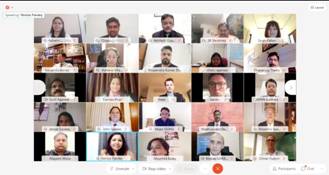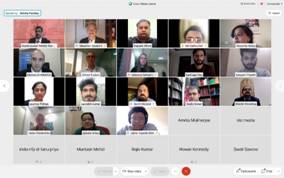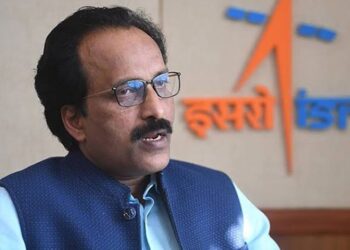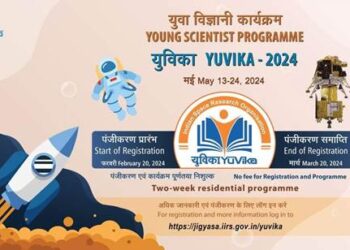Science attaches, science diplomats and representatives of foreign missions in India from about 20 countries discussed best practices for shaping India’s upcoming science policy at the round table discussion organized for consultation on the draft Science Technology and Innovation Policy recently.
“This policy is unique compared to the previous science policies in terms of being extremely bottom-up with inputs from people at grassroot level, decentralized with involvement of a diverse stakeholder base, experts-driven with participation of experts from a range of disciplines, inclusive with participation from people from all walks of life and evidence-based,” said Dr. Akhilesh Gupta, Adviser & Head STIP Secretariat, Department of Science & Technology (DST) who was leading the consultation.
“The COVID-19 pandemic provided a compelling opportunity for R&D institutions, academia, and industry to work in unison for a shared purpose ensuring synergy, collaboration, and cooperation which led to the formulation of the policy in span of six months,” he added.
He pointed out that under the upcoming policy, a proactive approach will be taken to strengthen the existing international partnerships and create new partnerships with a forward-looking international STI engagement framework and ‘S&T for Diplomacy’ as well as ‘Diplomacy for S&T’ will be promoted.
The virtual consultation was attended by science attaches, diplomats, and representatives from Afghanistan, Bangladesh, Canada, Denmark, European Union, France, Italy, Japan, Mexico, Norway, Portugal, Russia, British High Commission, United States of America, and others
“It’s a very unique meeting where the Department of Science and Technology (DST) has invited science attaches of various foreign missions in India to share their experience of working on the STIP document which India is going to adopt in the current year,” said Shri SK Varshney, Adviser & Head, International Cooperation, DST.
The representatives highlighted the need to reconnect with Indian diaspora for nurturing action towards their host countries and gave suggestions for implementation of ‘One Nation One Subscription’. They also suggested the need for appointing Chief Scientific Advisor in each state headed by the Federal Chief Scientific Advisor and including STI as a key element in every societal engagement. An open attitude for collaboration with international partners in research & development, selective support to research infrastructure based on evaluation criteria, aligning current and future efforts towards decentralization, targeted action plan for implementation of the policy were also proposed.
Department of Science and Technology under Ministry of Science and Technology, Government of India, has released the draft of the 5th National Science, Technology, and Innovation Policy put together by STIP Secretariat led by Dr. Akhilesh Gupta with guidance from the Office of Principal Scientific Adviser (PSA) to the Government of India (GoI) and DST, GoI for public consultation.The 5th Science, Technology, and Innovation Policy is drafted to bring profound changes via short-term, medium-term, and long-term mission mode projects by building a nurtured ecosystem that promotes research and innovation on the part of both individuals and organizations.


Source:PIB







 Finance
Finance






